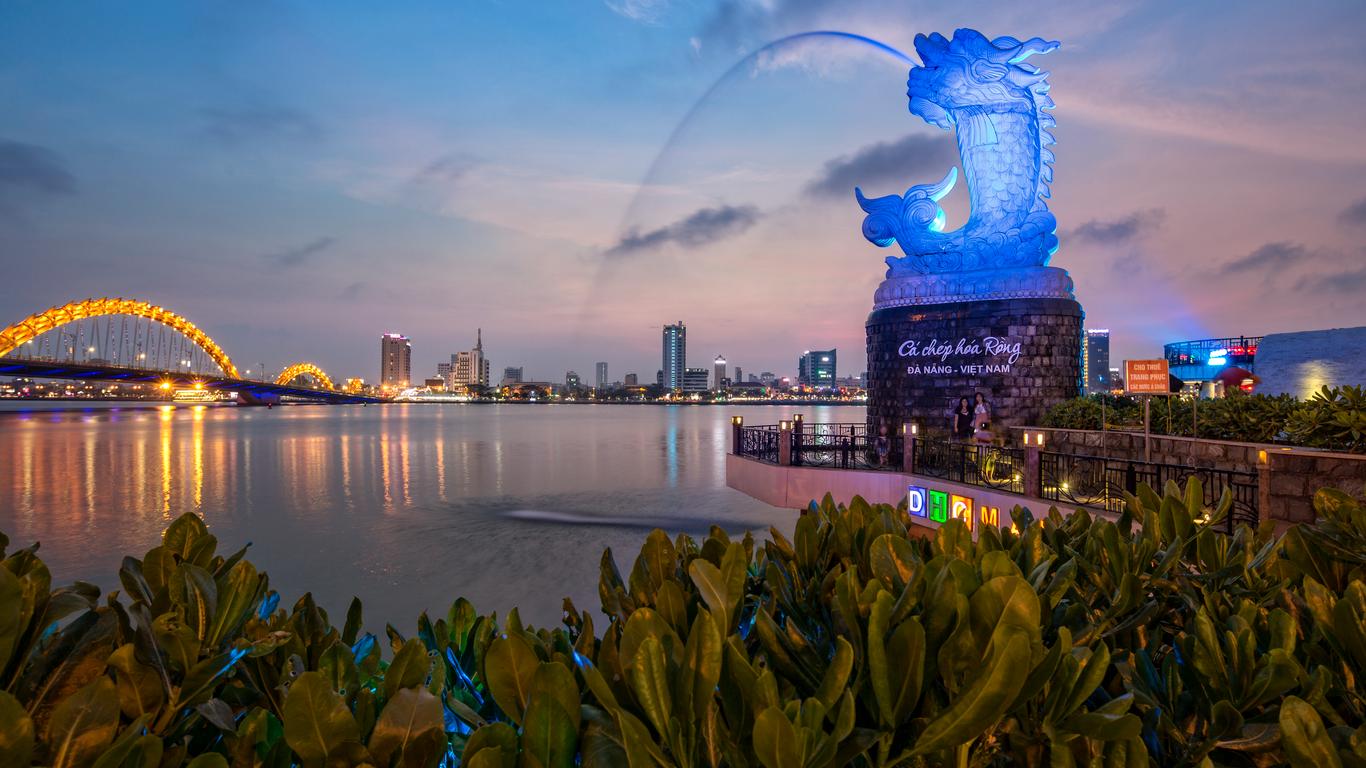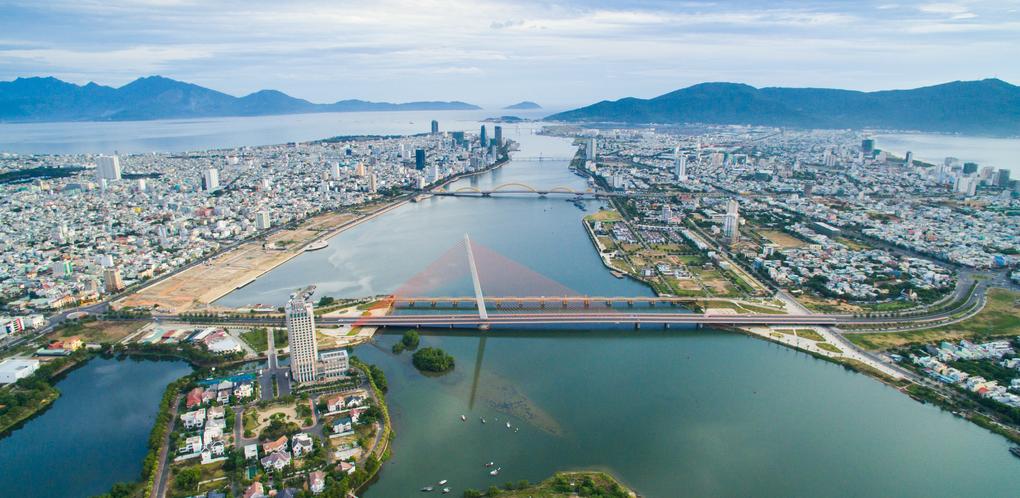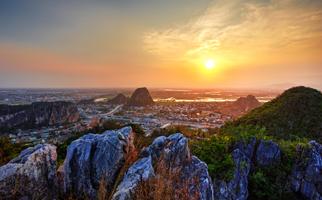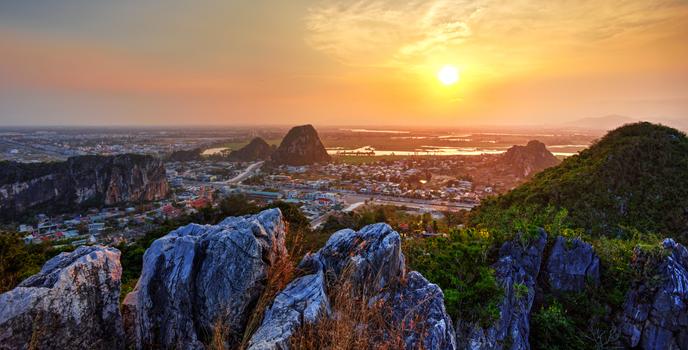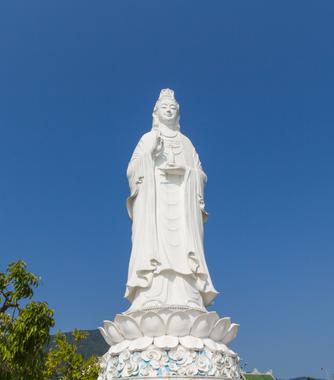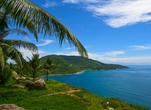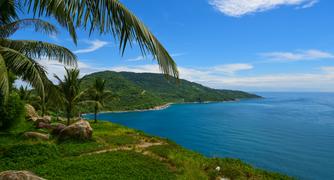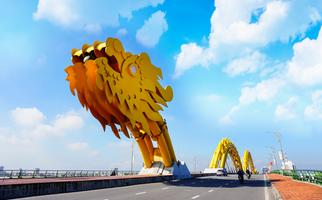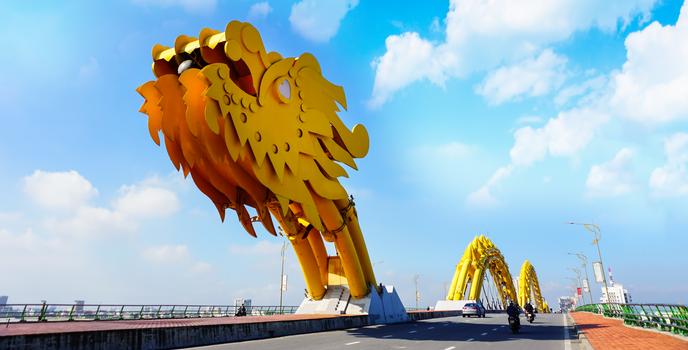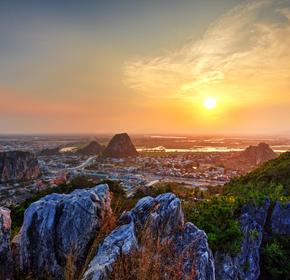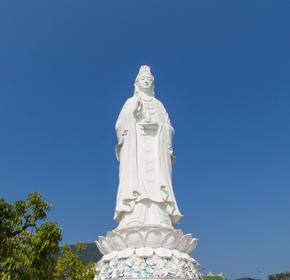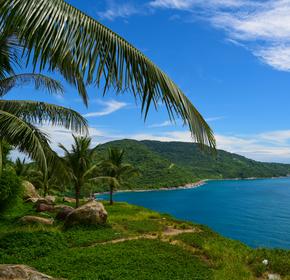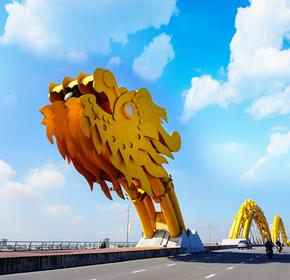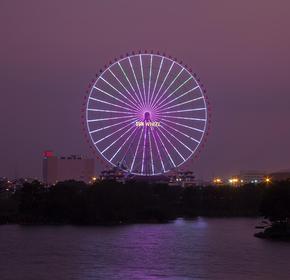1. Marble Mountains: Discover Hidden Buddhist Sanctuaries
Sitting just over four miles from Da Nang, the Marble Mountains are a collection of limestone and marble cliffs that house Buddhist sanctuaries and hidden secrets from the Vietnam War. Each mountain peak is named for one of the elements, and they have great significance to local people. As you journey through the mountains, you're sure to see numerous pagoda temples. A spectacular circular cave attracts visitors from all over the country and world. The Riverview Tower is also worth a visit; it offers beautiful views of the coastline and dates back to the 18th century.
2. Lady Buddha: Pay Your Respects to Miss Buddha
The largest Buddha statue in Vietnam is special because of more than its size -- the statue depicts the Buddha as a woman. Towering over 200 feet above the countryside, this white monument commands an impressive view over the mountains and sea. Flanked by numerous smaller statues of Buddhist deities and immaculately landscaped grounds, the Lady Buddha is a site of pilgrimage for many faithful Buddhist. If you're interested in understanding the religious practices of the locals, or if you're a lover of monumental sculpture, this is a must during your visit.
3. Sơn Trà Mountain: Hike up the Monkey Mountain
Climbing over 2,000 feet above sea level is no easy feat, but the view on top is more than worth it. Monkey Mountain was a prominent lookout point during the Vietnam War, but today it's been put to more peaceful use as a national park. Visitors are welcome to drive up to the top if they wish. Once there, they can expect stunning views over the city and the Pacific Ocean. The jungle is filled with animals such as rhesus macaques, pygmy slow lorises and red-shanked douc langurs. If you choose to hike, bring water -- it takes about four hours to get to the top from Bai Bac Beach.
4. Dragon Bridge: A Garishly Delightful Attraction
Da Nang, like many Vietnamese cities, sprang up along the banks of a river. Today, many bridges cross the Hàn, but none are as whimsical as the Dragon Bridge. A fierce yellow and red dragon lent its body to the engineers, who transformed it into a suspension bridge totaling over 2,000 feet in length. At night, the bridge lights up in a wide variety of colors, making it an especially picturesque addition to the cityscape.
5. Non Nuoc Beach: Time to Chill
After you spend your days exploring the city, there's no better place to relax than Non Nuoc Beach. Offering white sands and clean waters, this stretch of coastline extends for three miles, offering plenty of opportunities to sunbathe, swim, play, and run. It's become somewhat of a luxury getaway in recent years, and world-class golf resorts and hotels now line the sands. In addition, you'll find quite a few Michelin-star restaurants in the area. If you're in the mood for something more adventurous, try signing up for a jungle trek heading inland from the sand.
6. My Son Sanctuary: Get a Glimpse of Ancient Vietnamese Heritage
These derelict Hindu Temples were constructed between the 4th and 14th centuries and contained almost 70 buildings including tombs and in the peak of the site's development. For centuries, religious ceremonies for kings and royalty were carried out within the complex, making it one of the oldest inhabited archaeological sites in the region. Much of the temple complex was destroyed by US attacks during the Vietnam War, leaving just a handful of partially ruined Hindu Temples. The area has been more or less abandoned ever since, offering visitors a glimpse into past Indochina culture and history.
7. Hoi An Ancient Town: Get Lost in the Canals
Who says you need to go to Venice to take advantage of a gondola ride? Here in Hoi An, you can get the same tour ride through the ancient city's many canals for some truly spectacular shopping and eating opportunities. The city's eclectic cultural mix features a hodgepodge of different architectural styles including French colonial buildings, Japanese bridges, Chinese shop houses, and Vietnamese tube-houses. There are also several museums you can visit in the ancient town including the Phuoc Kien Assembly Hall, the Museum of Trade Ceramics, and the Museum of Sa Huynh Culture.
